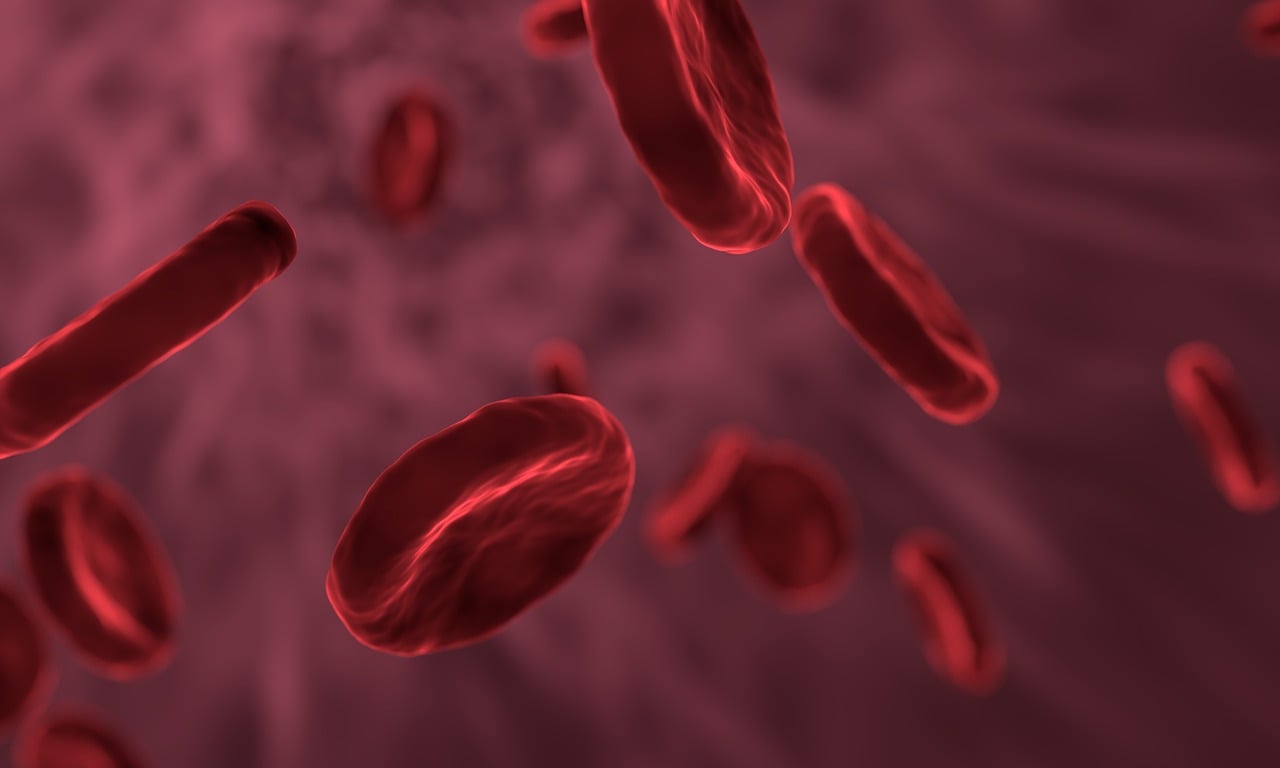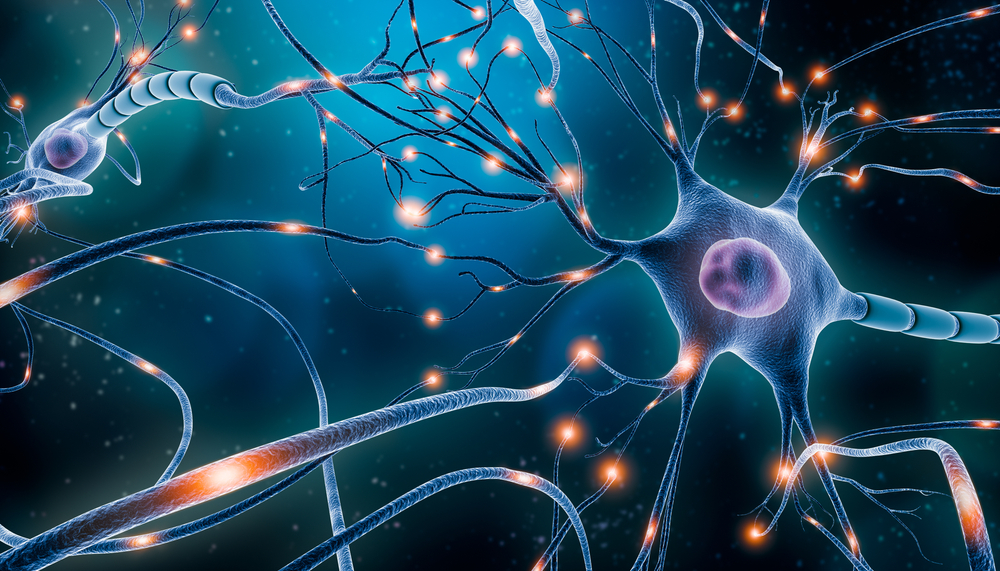Vitamin B12 is essential for our bodies. It actively contributes to producing various body cells, especially red blood cells and nervous system cells. It is found mainly in products of animal origin, so people practicing vegetarianism may suffer from its deficiency. Seniors or patients with digestive system problems are also at risk. Why? Keep reading, and you'll find out.
In this article, you will find the following information about Vitamin B12:
Vitamin B12 belongs to water-soluble vitamins. It is also called cobalamin since it contains cobalt as the central atom. Bacteria found in the digestive tract of mammals produce cobalamin.
In our human bodies, Vitamin B12 is produced in the large bowel. From there it cannot be absorbed anymore. Therefore, it must be provided with food.
Vitamin B12![]() in food is bound to protein and must be released before it can be absorbed. It is freed by the action of hydrochloric acid and gastric enzymes in the stomach, where it binds to apocrine, a vitamin B12-binding protein. In the duodenum, digestive enzymes release vitamin B12 from the apocrine. Vitamin B12 absorption from the digestive tract takes place in the ileum (distal part of the small bowel). For the process to occur, the presence of intrinsic factor (IF) produced in the stomach by parietal cells is necessary.
in food is bound to protein and must be released before it can be absorbed. It is freed by the action of hydrochloric acid and gastric enzymes in the stomach, where it binds to apocrine, a vitamin B12-binding protein. In the duodenum, digestive enzymes release vitamin B12 from the apocrine. Vitamin B12 absorption from the digestive tract takes place in the ileum (distal part of the small bowel). For the process to occur, the presence of intrinsic factor (IF) produced in the stomach by parietal cells is necessary.
The proper functioning of the body relies heavily on Vitamin B12. Hematopoietic processes require it – it aids in the red blood cells formation.
It also has a significant effect on the nervous system's functioning. Cobalamin is necessary for the myelin sheaths construction (the layer that surrounds the nerve fibers) and participates in the formation of neurotransmitters.
Vitamin B12, like other B-group vitamins, affects the metabolism of fats and carbohydrates. It also participates in the synthesis of proteins and the transformation of bases that build DNA (purines and pyrimidines) and is essential in the conversion of folic acid (Vitamin B9) to biologically active forms.
The daily requirement for vitamin B12 varies depending on the stage of life. The daily requirement for vitamin B12 is rising during pregnancy and lactation. The body is estimated to absorb about half of the vitamin B12 supplied with food.
Recommended Dietary Allowances![]() for Vitamin B12 in individual groups are:
for Vitamin B12 in individual groups are:

Natural sources of vitamin B12 are:
Breast milk is also a source of vitamin B12 (contains 0.44 mcg /L). For formula-fed infants, you can usually find products fortified with vitamin B12.
It is worth noting that not all food sources absorb to the same extent. The body absorbs vitamin B12 from dairy products up to three times more than meat.
Examples of foods and the amount of vitamin B12![]() they contain per 100 grams:
they contain per 100 grams:
Because vitamin B12 is available in everyday foods, it is rare for a significant dietary deficiency to happen. The exception is people who do not consume meat and animal products, who should use appropriate supplementation.
Body stores of vitamin B12 are about 4 mg, of which about 1 mg is in the liver. The body loses 0.3% of its total vitamin B12 storage daily, so it may take 1-3 years to exhaust the supply. After such a period of lack of it in food or interruption of its absorption from the gastrointestinal tract, vitamin b12 deficiency occurs.
In the case of severe deficiencies, the most common cause is malabsorption![]() caused by the impaired structure of the Castle factor or disorders of receptors in the ileum.
caused by the impaired structure of the Castle factor or disorders of receptors in the ileum.
Reasons for these conditions may be varied, e.g.,
Another cause may be transcobalamin deficiency which is a protein responsible for vitamin B12 transport in the blood.
Regarding minor deficiencies of vitamin B12 in the body, the following may be responsible: vegan or vegetarian diet, malnutrition, or alcoholism.
Also, some medications reduce the absorption of vitamin B12.
Symptoms of vitamin B12 deficiency concern the circulatory, digestive, and nervous systems. A deficiency of vitamin B12 and folic acid also causes symptoms that appear in psychiatric diseases.
Symptoms of vitamin B12 deficiency include:
Neurological symptoms include:
Mental symptoms![]() that may occur include:
that may occur include:
Blood tests are the basis of the Vitamin B12 deficiency diagnostic process![]() .
.
The basic test is blood count and vitamin B12 concentration. You should report for blood collection in the morning on an empty stomach.
To accurately determine the level of vitamin B12 in our bodies, additional tests can provide valuable insights. Healthcare professionals may utilize various tests, such as measuring methylmalonic acid, homocysteine, and the concentration of transcobalamin.
A blood test can show:
In finding the cause of a vitamin B12 deficiency, it is often necessary to perform a gastroscopy. Gastroscopy is a test that makes possible visual examination of the throat, esophagus, and stomach by inserting a flexible gastroscope tube through the mouth.
Anemia occurs when hemoglobin concentration drops below 13 g/dl in adult men or 12 g/dl in adult women (<11 g/dl in pregnant women).
Anemia classification according to its severity:

Blood components are produced in the bone marrow. The production of erythrocytes requires the provision of building components, which are iron, folic acid, and vitamin B12. If any of these are missing, red blood cell production is impaired.
If vitamin B12, folic acid, or both are deficient, this leads to the development of megaloblastic anemia![]() . The name comes from the abnormal size of the erythrocytes, which are too large (MCV Mean Cell Volume >100fL). Abnormal blood cells are characterized by abnormal appearance, shortened lifespan, and inability to function properly.
. The name comes from the abnormal size of the erythrocytes, which are too large (MCV Mean Cell Volume >100fL). Abnormal blood cells are characterized by abnormal appearance, shortened lifespan, and inability to function properly.
Symptoms include the classic symptoms of anemia (weakness, pale skin, difficulty concentrating, dizziness, tachycardia) and digestive tract symptoms such as weight loss and loss of appetite, loss of taste, red and sore tongue, nausea, diarrhea, or constipation.
Treatment of vitamin B12 deficiency anemia consists of removing or treating the cause of the deficiency and supplementing the vitamin.

Vitamin B12 is essential for the proper functioning of the nervous system![]() . It is necessary for the regeneration and formation of nerve fiber sheaths (myelin sheaths), which act as an electrical insulators of nerve cells and ensure proper and effective nerve conduction.
. It is necessary for the regeneration and formation of nerve fiber sheaths (myelin sheaths), which act as an electrical insulators of nerve cells and ensure proper and effective nerve conduction.
Myelin sheaths impairment can manifest as paresthesia, sensory disturbances, blurry vision, and gait problems.
Vitamin B12 is also involved in the production of important messenger substances, such as neurotransmitters or hormones that control the work of your brain, thus shaping our perception, and affecting mood and state of mind.
For this reason, vitamin B12 deficiency can manifest in psychiatric symptoms such as depression![]() , mood disorders, hallucinations, delusions, and dementia.
, mood disorders, hallucinations, delusions, and dementia.
Folic acid and vitamin B12 play a crucial role in the development of the fetal nervous system.
The neurological and developmental delays in children that result from vitamin B12 deficiency during pregnancy are irreversible. So, if you have a deficiency of this vitamin, it is worth enriching the diet with products containing large amounts of vitamin B12 as soon as possible, and in the event of large deficiencies – start supplementation.
Vitamin B12 deficiency in pregnancy is associated with an increased risk of many maternal and fetal ailments:
Depending on the cause of vitamin B12 deficiency, supplementation may be necessary for several months or the rest of your life.
Megaloblastic anemia is fully reversible. Nerve damage (peripheral neuropathy) can partially heal (usually within six months).
In patients with Addison-Biermer disease, the risk of gastric cancer is 2-3 times higher.
The best way to ensure proper vitamin levels in the body is a proper, balanced diet and regular preventive examinations.
It is important to avoid excessive alcohol consumption.
In the case of the use of drugs that can reduce vitamin B12 absorption, it is advisable to control the blood count during therapy, and at the same time to limit it to the necessary minimum. However, this must be the doctor's decision. Never stop or reduce your prescribed medication on your own!
There is no upper intake level![]() of vitamin B12. Since vitamin B12 belongs to water-soluble vitamins, the body removes its excess through urine. There are no known cases of vitamin B12 overdose. However, you should not use any supplements in very high doses without consulting your doctor first.
of vitamin B12. Since vitamin B12 belongs to water-soluble vitamins, the body removes its excess through urine. There are no known cases of vitamin B12 overdose. However, you should not use any supplements in very high doses without consulting your doctor first.
1 in 10 people over 75 are deficient in vitamin B12. Due to the higher incidence of diseases affecting the absorption of vitamin B12 in the elderly![]() , the absorption of vitamin B12 is reduced. These diseases include:
, the absorption of vitamin B12 is reduced. These diseases include:
The stomach's cells produce Castle's factor. Its combination with vitamin B12 is necessary for its absorption. Absorption itself takes place in the ileum. After surgery involving the removal of the stomach![]() or small intestine, e.g., in people with cancer, the absorption of vitamin B12 is impaired. In such people, intramuscular injections of vitamin B12 are necessary.
or small intestine, e.g., in people with cancer, the absorption of vitamin B12 is impaired. In such people, intramuscular injections of vitamin B12 are necessary.
People suffering from gastrointestinal diseases such as Crohn's disease, atrophic gastritis, or celiac disease are at risk of insufficient absorption of cobalamin.
Treatment![]() of vitamin b12 deficiency consists in removing or treating its cause and supplementing the deficiency of the vitamin.
of vitamin b12 deficiency consists in removing or treating its cause and supplementing the deficiency of the vitamin.
Depending on the cause and patient's condition the following forms of treatment can be used:
Some medications![]() can reduce the absorption of vitamin B12. These drugs include
can reduce the absorption of vitamin B12. These drugs include
People who do not consume animal products are at risk of vitamin B12 deficiency. Plant products, even if they contain trace amounts of vitamin B12, are not a sufficient source of it and are poorly absorbed. Therefore, the best source of this vitamin for people following a vegan diet![]() is fortified products (fortified breakfast cereal and nutritional yeast) and dietary supplements.
is fortified products (fortified breakfast cereal and nutritional yeast) and dietary supplements.
If you are in the group of people at risk of vitamin B12 deficiency or experience symptoms of its deficiency, you should consult your doctor who will decide whether it is necessary to perform tests assessing the content of cobalamin in the body.